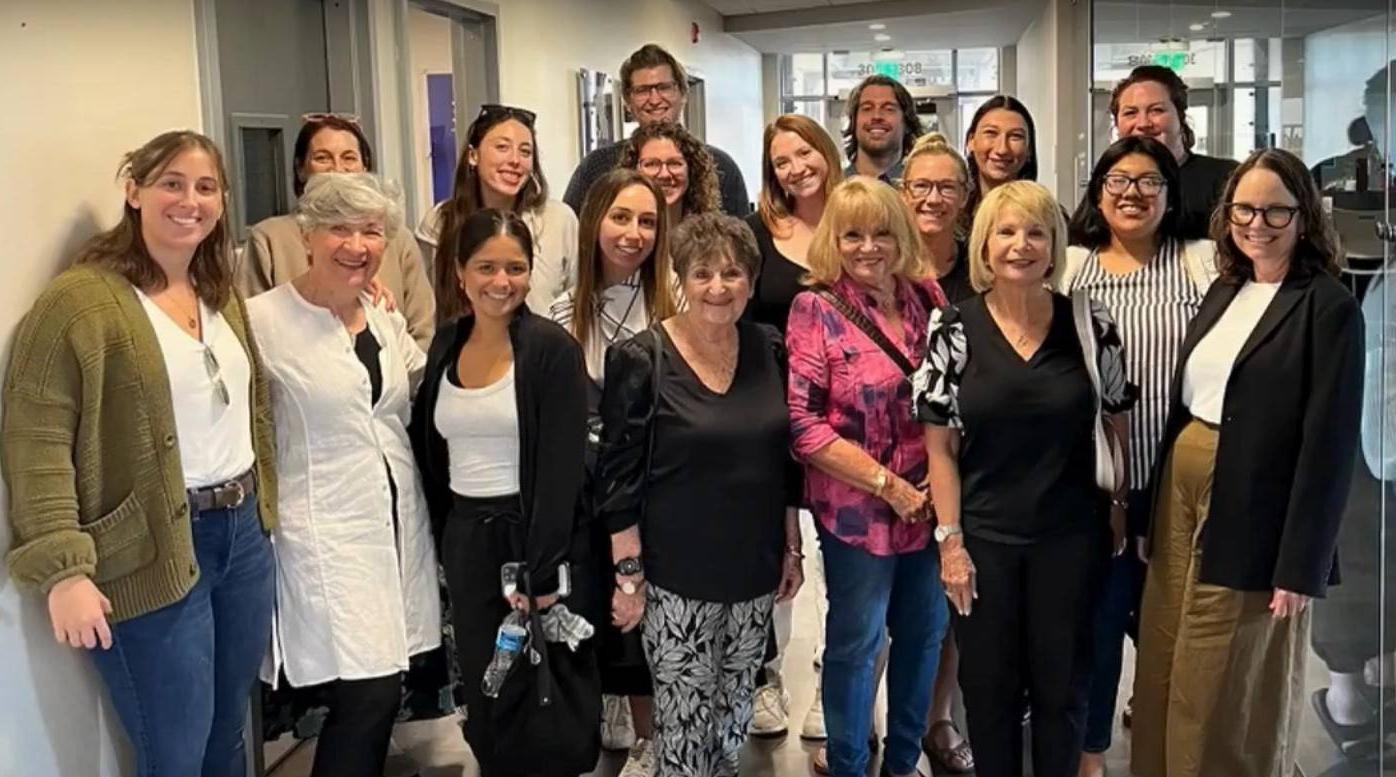Intergenerational Resilience: Stories of Survival and Strength
Tuesday, Nov 26, 2024
Lauren Gutierrez, MSW student, had an idea during her on-campus internship at Hillel International that then turned into a class project that none of the participants will ever forget. To explore the workings of intergenerational trauma—and intergenerational resilience—students in the graduate course SOW 6116: Social Work and Trauma conducted interviews with Holocaust survivors and then expressed what they learned in creative ways.
Individuals of all sorts can carry the emotional impact of previous generations’ struggles. Under the guidance of course instructor Joy McClellan, DSW, MSW, senior instructor in the Sandler School of Social Work and MSW degree program coordinator, students practiced trauma-informed interviewing techniques. More than mere listening, trauma-informed interviewing means creating a safe space, recognizing triggers, and validating the experiences of people sharing their stories. Students learn to approach their subjects with sensitivity in order to understand the far-reaching after-effects of intense psychic wounds and acute emotional stress.
The project reflects Dr. McClellan’s dedication to innovative teaching methods and dynamic curriculum design. Having worked in the areas of children’s mental health, family strengthening and preservation, and child welfare, McClellan specializes in integrated treatment of complex trauma for children and adults.
Understanding Intergenerational Trauma in Clinical Practice
Trauma’s effects typically don’t end with the individual—they’re often passed down through generations. The effects of trauma can pass from parents to children and grandchildren, often through a combination of behavioral, biological, social, and psychological pathways that manifest in patterns that affect families and communities over time.
Social workers often encounter intergenerational trauma in communities impacted by historical events like war, colonization, slavery, and displacement. Families affected by injustice or refugee experiences can carry unresolved grief, fear, or mistrust that remain long past the inciting events.
For example, when a parent experiences significant trauma—be it through abuse, neglect, war, or some other form of oppression—it impacts their mental health, parenting style, and ability to form secure attachments with their children. These effects can ripple into the next generation, leading to difficulties in emotional regulation, trust, and coping mechanisms. The process continues when these children become parents themselves, often perpetuating the cycle unless interventions occur.
Student Artwork and Reflection
As part of the project, Dr. McClellan encouraged students to draw upon what they learned in their interviews with Holocaust survivors to express themselves creatively. The pieces they produced—ranging from sketch work to collage to poetry—reflect the pain, resilience, and hope of these survivors as they pass their stories to future generations.
One student wrote, “Skeletons of the past are put to rest, but never truly die / Explosions ring and I am hungry… / Ashes and embers ignite.”
“As we reflect on the stories shared by Holocaust survivors, we are reminded of the resilience of the human spirit,” said Dr. McClellan. “Their strength in the face of unimaginable adversity teaches us the power of love, remembrance, and resilience. Their stories are not just of survival, but of triumph.”
“Whether a client's trauma stems from recent events or a legacy of past generational experiences, trauma-informed clinicians are better equipped to support clients with respect, care, and deep understanding of their unique narratives.”
Speaking to the power of following an inspired idea and seeing where it leads, “Lauren Gutierrez brought the project to my class as part her generalist internship at Hillel on campus,” McClellan said. “She is ALL of the energy behind this!”